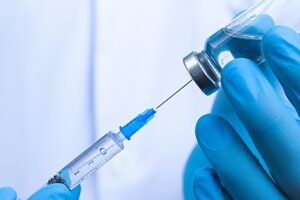Roivant Sciences and Poxel have signed a strategic development and license agreement for imeglimin, an investigational oral therapy which has been developed by Poxel for the potential treatment of type 2 diabetes, in the US, Europe and all other countries not covered by Poxel’s existing agreement in East and Southeast Asia.
Subscribe to our email newsletter
This partnership enables Roivant to add an innovative late-stage development program to its pipeline and Poxel gains a strategic development and licensing agreement for imeglimin beyond the company’s partnership with Sumitomo Dainippon Pharma.
Under the terms of the agreement, Poxel is entitled to receive an upfront payment of $35 million (approximately €28 million) and Roivant will invest $15 million (approximately €12 million) in Poxel through a subscription to 1,431,399 newly-issued ordinary shares at €8.5 per share.
Poxel is entitled to receive potential future development and regulatory milestone payments and sales-based payments of up to $600 million (approximately €486 million) subject to the successful clinical development and commercialization of imeglimin. Furthermore, after launch Poxel will be entitled to double-digit royalties on net sales.
Roivant will be responsible for development and commercialization costs and Poxel will contribute $25 million (approximately €20 million) to the development program. The parties will decide on a potential co-promotion prior to commercialization.
Poxel CEO Thomas Kuhn said: “We are very pleased to partner with Roivant, an emerging leader in biopharma with proven commitment to developing innovative therapies in major disease areas. Roivant’s vision complements Poxel’s strategy of bringing novel treatments for type 2 diabetes and other metabolic disorders to patients.”
Roivant Sciences founder and CEO Vivek Ramaswamy said: “We are pleased to have reached this agreement with Poxel as we continue our strategy of in-licensing late-stage development candidates in underserved therapeutic areas.”
Activities in 2018 to support initiation of the Phase 3 program will include differentiation studies to confirm imeglimin’s potential in sensitive patient populations, such as those with chronic kidney disease, as well as manufacturing of the drug product for use in the Phase 3 program. The goal is to initiate the Phase 3 program in the U.S. and Europe in 2019.
Imeglimin has completed Phase 1 and Phase 2 development in 18 clinical studies involving over 1,200 subjects with type 2 diabetes in the US, Europe, and Japan, and met its primary and secondary endpoints, including a statistically significant decrease of HbA1c and fasting plasma glucose versus placebo, with a favorable side effect profile.
Imeglimin is the first clinical candidate in a new chemical class of oral agents called the Glimins by the World Health Organization. Imeglimin has a unique mechanism of action (MOA) that targets mitochondrial bioenergetics and acts on the three key organs which play an important role in the current anti-diabetic treatment paradigm: the liver, muscles, and the pancreas.
 Advertise With UsAdvertise on our extensive network of industry websites and newsletters.
Advertise With UsAdvertise on our extensive network of industry websites and newsletters.
 Get the PBR newsletterSign up to our free email to get all the latest PBR
news.
Get the PBR newsletterSign up to our free email to get all the latest PBR
news.

